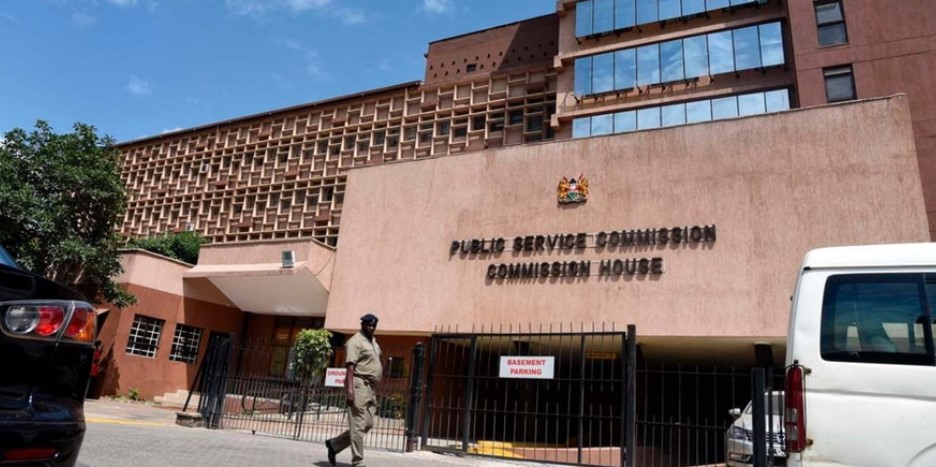Government orders fresh audit of academic certificates for all civil servants

PSC said the verification exercise will no longer be limited to officers employed within the last decade but will cover all public servants regardless of when they joined the service.
All government ministries, State departments, agencies and public institutions have been directed to conduct a fresh audit of academic and professional certificates for every civil servant, as the Public Service Commission (PSC) intensifies efforts to curb rising cases of forged certificates.
The commission said the verification exercise will no longer be limited to officers employed within the last decade but will cover all public servants regardless of when they joined the service.
More To Read
- Audit flags leadership vacuum at Garissa University since 2022
- Outgoing NCIC faces scrutiny over last-minute recruitment of 22 staff
- Kenya School of Government cancels hundreds of fake certificates in major crackdown
- High Court invalidates State corporation management guidelines limiting PSC
- Nairobi Water employee fined Sh8.5 million for using forged KCSE certificate to secure job
- Ruto appoints seven-member panel to recruit new Public Service Commission chairperson
The PSC said the decision was prompted by growing evidence of widespread fraud, which it warned has eroded the credibility of the country’s education system and undermined merit-based recruitment and promotion in the public service.
“The integrity of Kenya’s public service is directly tied to the authenticity of the qualifications of those who serve. We can no longer ignore the reality that a section of the workforce may have entered the service through deceit,” the commission said in a circular dated October 2025.
The latest directive builds on an earlier one issued in October 2022, which had required all authorised officers to verify the certificates of officers who joined the public service from 2012 onwards. However, the commission said that after uncovering rampant falsification, it had become necessary to extend the verification to all employees, from junior clerks to senior executives.
Principals of national polytechnics, technical training institutes and vocational colleges have also been urged to comply with the PSC directive.
“You are hereby instructed to notify all staff within your respective institutions of this mandatory requirement and to provide necessary administrative support to facilitate the authentication exercise. Failure to comply with this directive may lead to administrative action as provided under the Public Service Commission Regulations,” reads the letter.
The PSC has instructed all authorised officers and institutional heads to inform their staff of the ongoing authentication exercise and ensure full participation.
“All academic and professional certificates for all officers, irrespective of date of employment, in the Public Service must be authenticated and a report submitted to the commission,” the PSC said.
The commission further cautioned that failure to comply with the new directive could attract disciplinary action in line with the Public Service Commission Regulations.
Under the guidelines, all civil servants are required to authenticate their Kenya Certificate of Primary Education (KCPE), Kenya Certificate of Secondary Education (KCSE), and diploma certificates issued by the Kenya National Examinations Council (KNEC) by October 18.
The verification will be conducted through the KNEC online portal at https://qmis.knec.ac.ke.
The move by the PSC highlights mounting concern within government over the extent of academic forgery. The commission revealed that an increasing number of public officers have been found to possess fake certificates from local and foreign universities, private colleges and even secondary schools.
According to the PSC, the growing trend has distorted recruitment and promotion processes in the civil service, allowing unqualified individuals to occupy key public offices.
Over the past decade, several public institutions have been rocked by scandals involving forged academic papers. Investigations by the Ethics and Anti-Corruption Commission (EACC) and the Directorate of Criminal Investigations (DCI) have uncovered multiple cases in which individuals secured high-ranking positions using fake degrees or unaccredited diplomas.
Other Topics To Read
In 2019, the Kenya National Qualifications Authority (KNQA) raised an alarm over the surge of fraudulent academic papers in circulation, warning that the vice posed a serious threat to Kenya’s global academic reputation.
The authority noted that unscrupulous local and foreign institutions were selling fake degrees online, making it increasingly difficult for employers to distinguish between genuine and forged credentials.
Top Stories Today












































